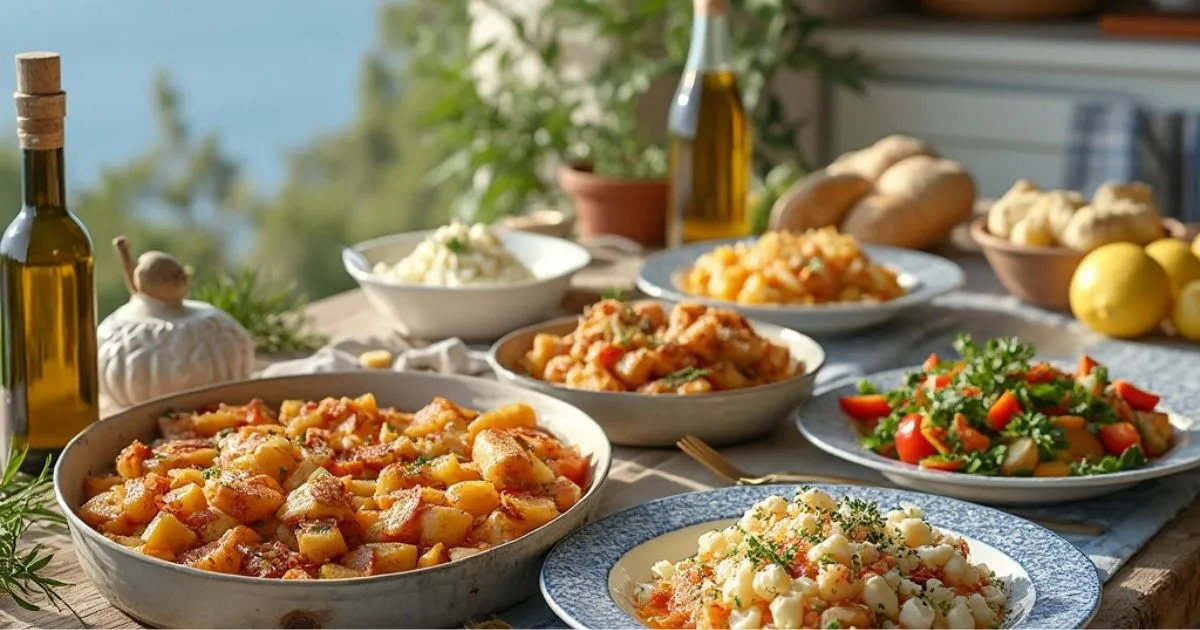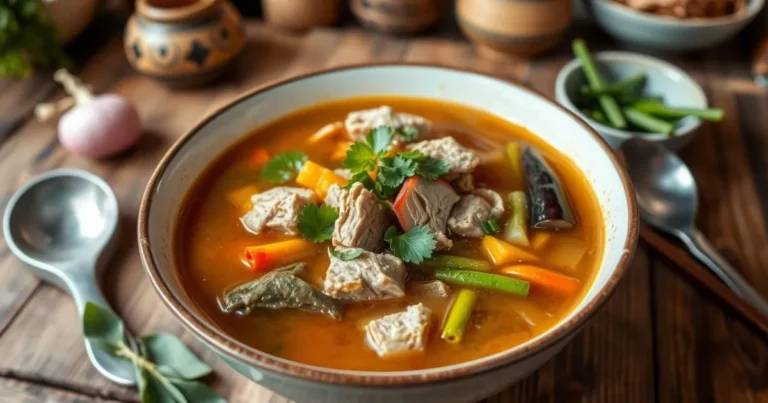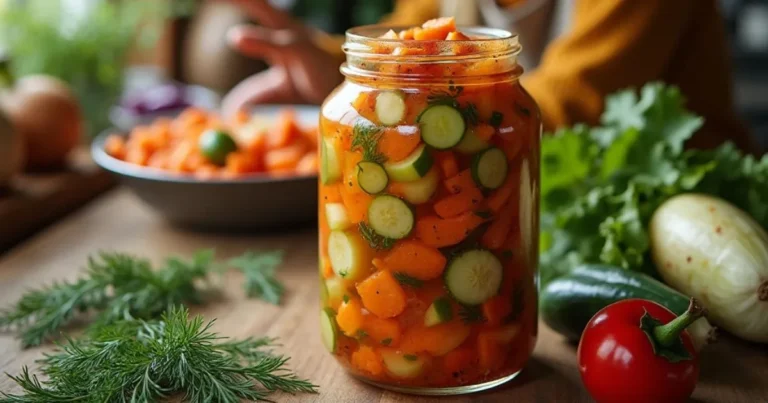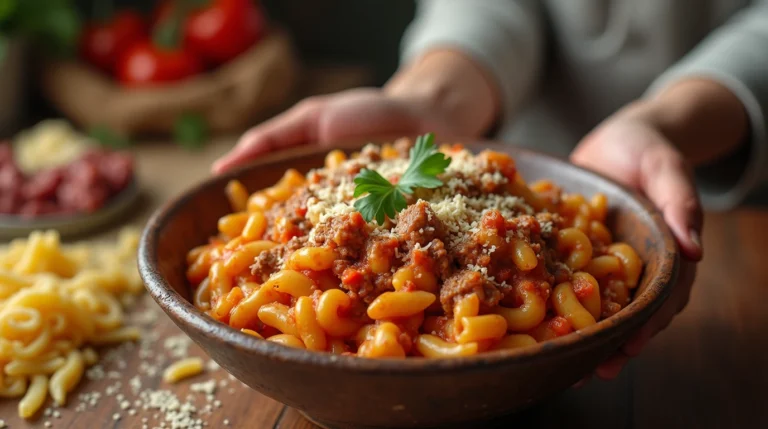5 Tasty Authentic Greek Recipes for Delicious Mediterranean Meals
Table of Contents
What comes to mind when you think of Greek cuisine? Perhaps the tang of feta cheese, the earthiness of olive oil, or the zesty flavor of tzatziki. Greek food isn’t just about eating; it’s an experience that brings together fresh ingredients, centuries of tradition, and bold flavors. Whether you’ve had the pleasure of dining at a sunlit taverna in Greece or you’ve simply admired the vibrant Mediterranean dishes from afar, now is the perfect time to bring these delightful flavors straight to your kitchen.


In this article, we’ll take you on a culinary journey through authentic Greek recipes that are easy to follow and bring a slice of the Mediterranean to your home. From the health benefits to the culture, let’s dive into the world of Greek cuisine and discover how you can create delicious Mediterranean meals that will have your taste buds singing.
Why Choose Authentic Greek Recipes?
Greek cuisine is much more than just a set of recipes — it’s a way of life. But why exactly should you opt for authentic Greek recipes in your cooking? Let’s take a closer look.
The Health Benefits of Greek Recipes
Greek cuisine is renowned for being part of the Mediterranean diet, which has been linked to numerous health benefits. Here are some reasons why Greek food is so good for you:
- Mediterranean Diet Basics: The Mediterranean diet is a heart-healthy way of eating that incorporates fresh vegetables, olive oil, whole grains, lean proteins, and healthy fats like those found in fish and nuts. It’s widely considered one of the healthiest diets in the world.
- Rich in Nutrients: Greek dishes are packed with essential vitamins and minerals. Vegetables like tomatoes, cucumbers, and leafy greens offer a wealth of antioxidants, while olive oil provides a dose of healthy fats that support your cardiovascular health.
- Balanced Meals: Greek recipes feature a perfect balance of carbohydrates, fats, and proteins. You’ll find dishes that fill you up without leaving you feeling sluggish or overly stuffed.
By incorporating more Greek recipes into your diet, you’re not only treating yourself to something delicious but nourishing your body as well.
Cultural and Culinary Significance
Greek food is deeply connected to the country’s rich history and culture. In Greece, food is often a way to bring people together, whether it’s a family dinner or a grand celebration. Cooking and eating are rituals passed down through generations, and the flavors reflect the land’s natural bounty, from olive groves to vibrant vegetable fields.
By choosing authentic Greek recipes, you’re not just cooking a meal — you’re taking part in an age-old tradition that celebrates community, family, and the pleasures of eating well.
Essential Ingredients in Greek Cooking
When it comes to Greek food, the ingredients are just as important as the recipe itself. Here are some of the key ingredients you’ll encounter in authentic Greek recipes, and why they matter:
Olive Oil
Olive oil is the cornerstone of Greek cuisine, and it’s no surprise given its health benefits and rich flavor. Greek olive oil is known for its high quality, especially the extra virgin varieties. It’s used for everything — from cooking and frying to drizzling over salads or finishing dishes. Always opt for a high-quality olive oil to achieve the authentic taste.
Feta Cheese
No Greek meal is complete without feta, the salty and tangy cheese that’s made from sheep’s or goat’s milk. Whether it’s crumbled on top of a salad or baked into a pastry like Spanakopita, feta adds a creamy, sharp bite that balances the fresh flavors of Greek cooking.
Fresh Herbs
Greek food is all about fresh, bold flavors, and herbs are key to achieving that. You’ll find oregano, basil, thyme, dill, and mint used in nearly every dish. These herbs infuse Greek recipes with vibrant notes that make every bite an adventure.
Lemon and Garlic
The combination of lemon and garlic is a quintessential part of Greek cooking. Fresh lemon brings a burst of brightness, while garlic contributes a bold, savory flavor. Together, they bring balance and depth to everything from marinades to sauces.
Phyllo Dough
Phyllo dough is essential in many Greek pastries, like Spanakopita (spinach pie) and Baklava. Its light, flaky texture provides the perfect contrast to the rich fillings, and with a little practice, you’ll be able to handle phyllo like a pro.
Iconic Greek Recipes to Try at Home
Now that we’ve covered the essential ingredients, it’s time to dive into some classic Greek recipes you can easily recreate at home. These dishes are full of flavor, nutrition, and tradition, and they’ll bring a piece of Greece right into your kitchen.
Appetizers and Starters
Tzatziki Sauce (Greek Yogurt and Cucumber Dip)
Tzatziki is the perfect refreshing dip to serve as an appetizer or alongside grilled meats. This creamy yogurt-based dip is flavored with cucumber, garlic, and fresh herbs. It’s simple to make and packs a punch of flavor.
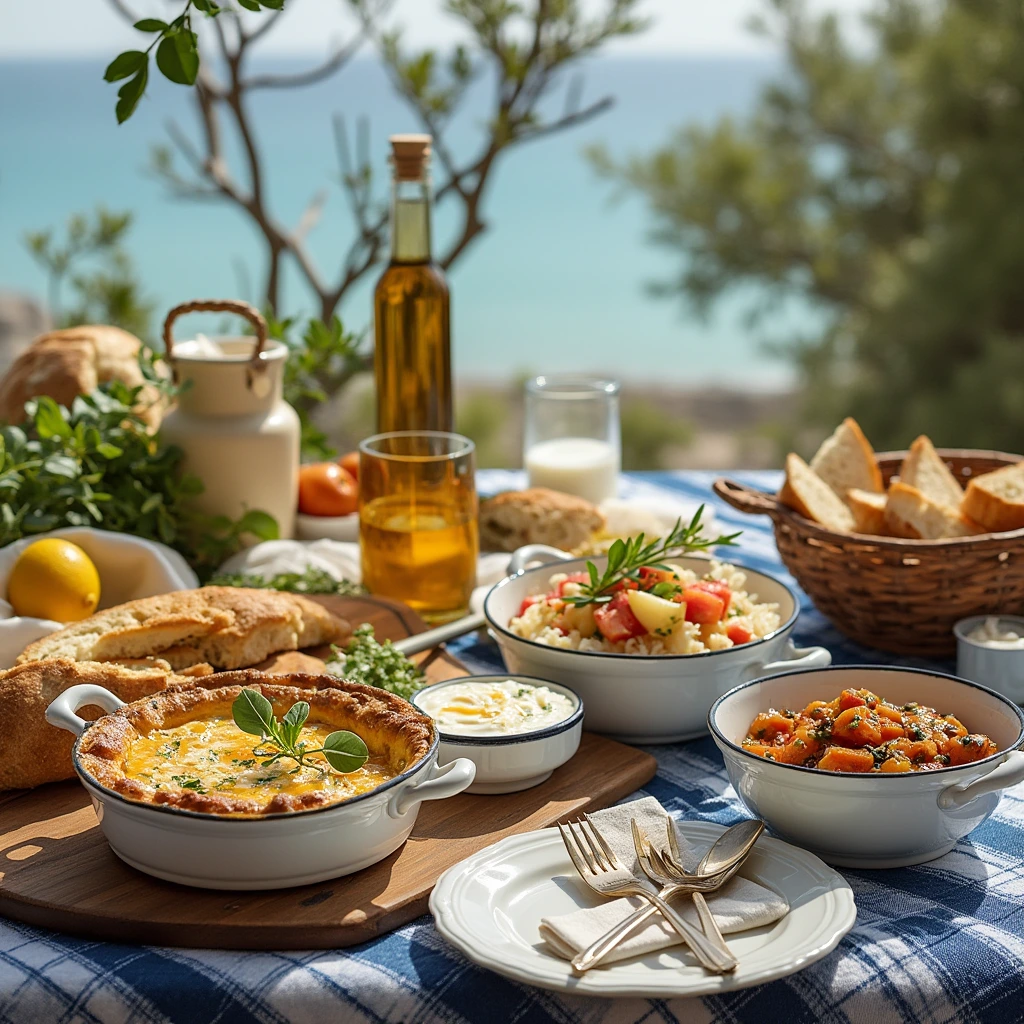

Ingredients:
| Ingredient | Quantity |
| Greek yogurt | 1 cup |
| Cucumber | 1 medium |
| Garlic cloves | 2 |
| Olive oil | 2 tbsp |
| Dill (chopped) | 1 tbsp |
| Lemon juice | 1 tsp |
Instructions:
- Shred the cucumber and remove any excess moisture.
- Combine the Greek yogurt, cucumber, garlic, olive oil, dill, and lemon juice in a bowl and mix well.
- Chill for 30 minutes before serving.
Spanakopita (Spinach Pie)
Spanakopita is a delicious pastry filled with spinach and feta, all wrapped in layers of crispy phyllo dough.This dish works wonderfully as an appetizer or a light meal.
Ingredients:
| Ingredient | Quantity |
| Phyllo dough | 10 sheets |
| Spinach | 500g |
| Feta cheese | 200g |
| Onion (chopped) | 1 |
| Olive oil | 2 tbsp |
| Eggs | 2 |
Instructions:
- Sauté the onions in olive oil until they become soft, then add the spinach and cook until it wilts.
- Stir in the feta cheese and eggs, mixing to combine.
- Layer the phyllo dough in a baking dish, brushing each sheet with olive oil.
- Add the spinach mixture and cover with more phyllo dough.
- Bake at 350°F (175°C) for 30 minutes, until golden and crispy.
Main Courses
Moussaka
Moussaka is Greece’s answer to lasagna — layers of eggplant, ground meat, and a rich béchamel sauce. It’s a filling and hearty dish that’s perfect for a special occasion or family dinner.
Ingredients:
| Ingredient | Quantity |
| Eggplants | 3 large |
| Ground beef | 500g |
| Tomato sauce | 2 cups |
| Béchamel sauce | 2 cups |
| Spices | To taste |
Instructions:
- Slice and grill the eggplant until tender.
- Cook the ground beef with onions, garlic, and tomato sauce until the meat is thoroughly browned and cooked through.
- Layer the eggplant, meat sauce, and béchamel sauce in a baking dish.
- Bake at 375°F (190°C) for 45 minutes, or until the top is golden and bubbling.
Souvlaki (Grilled Meat Skewers)
Souvlaki is a quintessential Greek street food made with marinated chicken or pork skewered and grilled to perfection. It’s typically served with pita bread and a side of tzatziki.
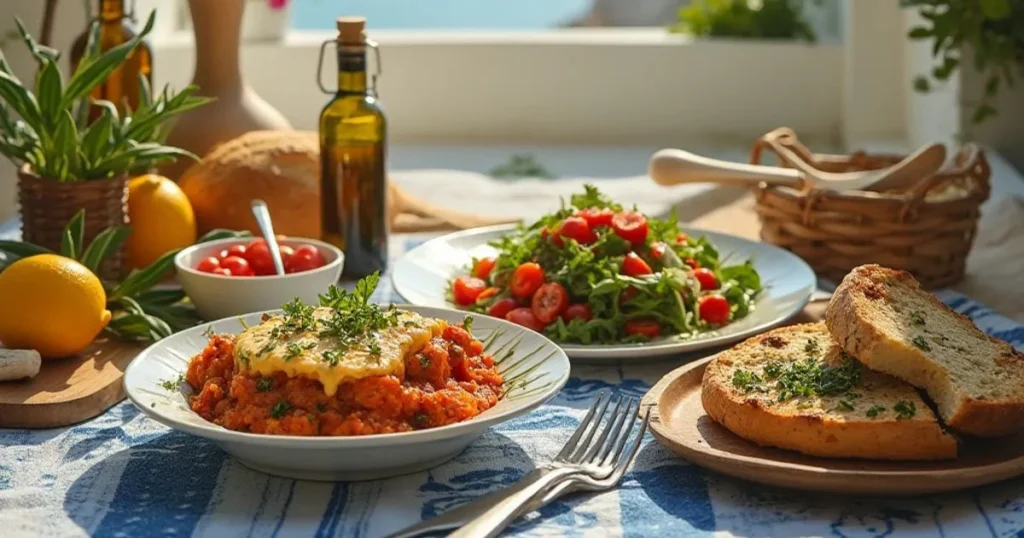
Ingredients:
| Ingredient | Quantity |
| Chicken or Pork | 500g |
| Olive oil | 3 tbsp |
| Lemon juice | 2 tbsp |
| Garlic cloves | 2 |
| Oregano | 1 tsp |
Instructions:
- Marinate the meat in olive oil, lemon juice, garlic, and oregano for at least 30 minutes.
- Thread the marinated meat onto skewers.
- Grill over medium heat for 10-12 minutes, turning occasionally for even cooking.
Desserts
Baklava
Baklava is a decadent pastry consisting of layers of phyllo dough, chopped nuts, and a sweet honey syrup. It’s the perfect way to end a Greek meal on a sweet note.
Ingredients:
| Ingredient | Quantity |
| Phyllo dough | 12 sheets |
| Mixed nuts | 1 cup |
| Butter | 1/2 cup |
| Honey | 1/2 cup |
| Sugar | 1/4 cup |
Instructions:
- Layer the phyllo dough and butter, adding chopped nuts between layers.
- Bake at 350°F (175°C) for 30 minutes until golden.
- Pour honey and sugar syrup over the hot baklava and allow to cool.
Tips for Mastering Greek Recipes at Home
To truly master Greek cooking, it’s important to pay attention to a few key details that will elevate your dishes.
Sourcing the Best Ingredients
- Always use high-quality olive oil to ensure authentic flavor.
- Fresh herbs like oregano, thyme, and dill are essential for achieving the distinctive Greek taste.
Common Mistakes to Avoid
- Don’t overcook meats or vegetables. Greek cuisine celebrates fresh, vibrant flavors.
- Be patient when working with phyllo dough. Handle it carefully to avoid tearing.
Frequently Asked Questions (FAQs)
What are the most popular Greek recipes? Some of the most beloved Greek recipes include Moussaka, Spanakopita, Tzatziki, Souvlaki, and Baklava.
Can I make Greek recipes vegetarian? Yes! Many Greek recipes, like Spanakopita and Dolmades, are naturally vegetarian. You can also substitute meats in many dishes with plant-based proteins.
How do I store leftovers from Greek recipes? Most Greek dishes can be stored in airtight containers and refrigerated for up to 3 days. For dishes like Moussaka, you can also freeze them for up to 3 months.
Conclusion: Bring the Mediterranean to Your Kitchen
Greek recipes offer a way to savor the flavors and health benefits of the Mediterranean right in your own home. From fresh ingredients to time-honored traditions, these dishes aren’t just food; they’re a celebration of culture, community, and good living. So, gather your ingredients, put on your apron, and start cooking your way through Greece. Whether you’re making a family dinner or preparing a festive spread, these authentic Greek recipes will take you on a flavorful journey that you and your loved ones will enjoy for years to come.
Ready to start cooking? Grab your ingredients and let the magic of Greece unfold in your kitchen!

